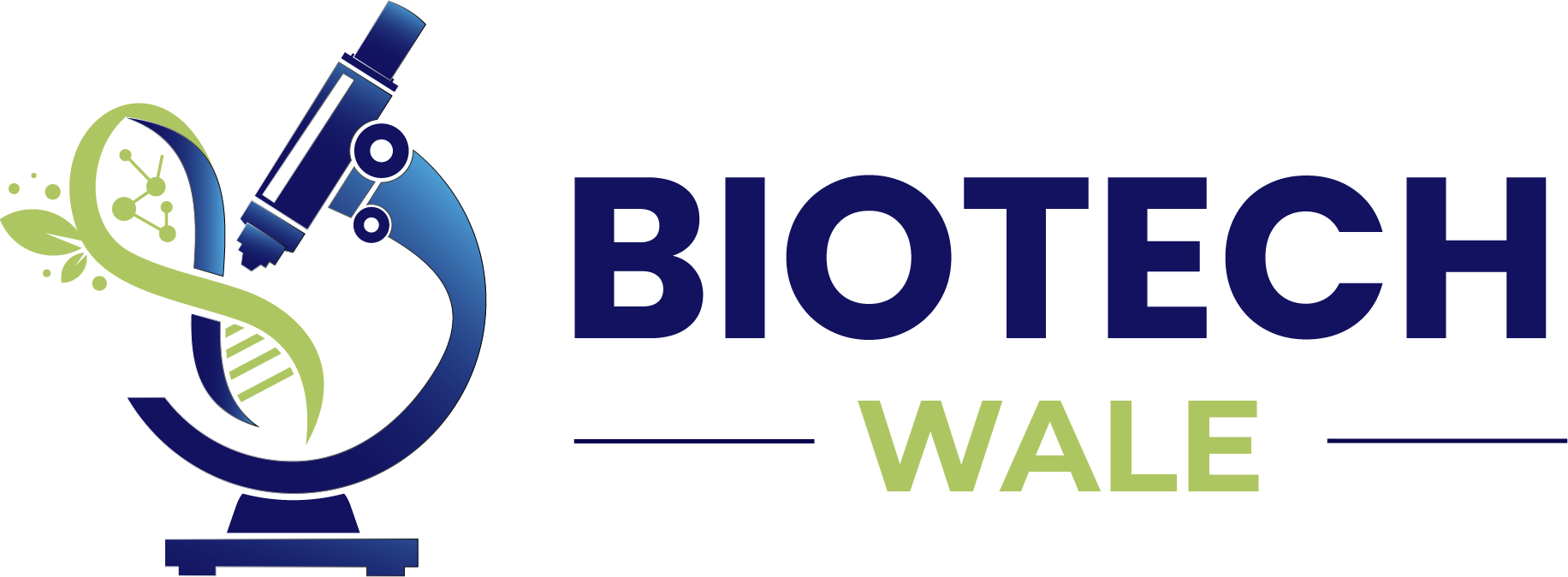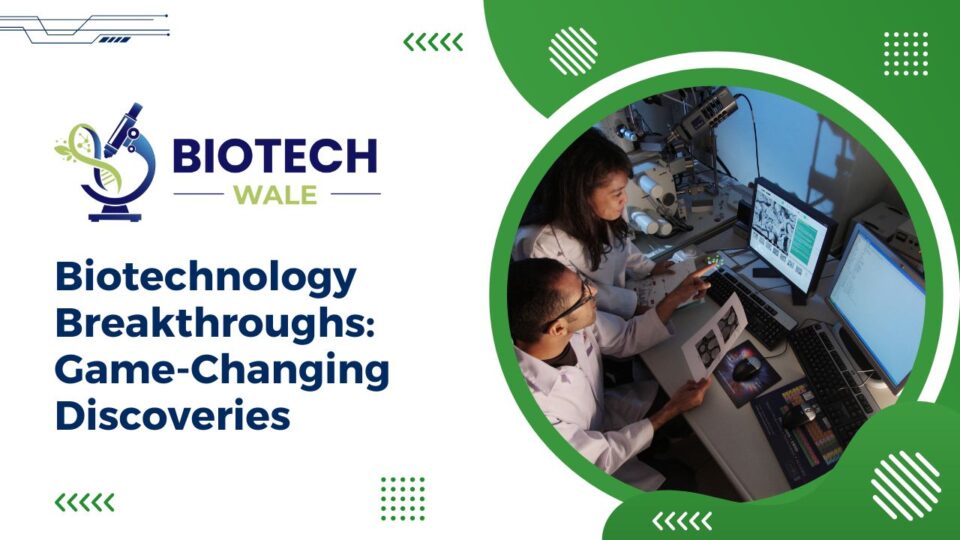Introduction to Biotechnology
Welcome to the fascinating world of biotechnology, where science fiction meets reality and groundbreaking discoveries shape the future of medicine and beyond. In this blog post, we’ll delve into some of the most game-changing breakthroughs in biotechnology that are revolutionizing healthcare, agriculture, and environmental sustainability. From CRISPR technology to personalized medicine, get ready to be amazed by the incredible advancements driving innovation in the field of biotechnology.
Recent Groundbreaking Discoveries in Biotechnology
Recent Groundbreaking Discoveries in Biotechnology have been reshaping the landscape of science and medicine. Scientists are constantly pushing the boundaries of what is possible, uncovering new ways to improve human health and the environment. From CRISPR technology to synthetic biology, these innovations are revolutionizing our understanding of genetic engineering and disease treatment.
One remarkable breakthrough involves CRISPR technology, a revolutionary tool that allows scientists to edit genes with precision never seen before. This breakthrough has opened up endless possibilities for treating genetic disorders and diseases at their root cause.
Another game-changing discovery is synthetic biology, which involves designing biological systems from scratch. This approach has led to the creation of novel biofuels, sustainable materials, and even potential solutions for environmental challenges.
Immunotherapy stands out as a promising approach in cancer treatment by harnessing the power of the immune system to target and destroy cancer cells effectively. Personalized medicine is also advancing rapidly, allowing healthcare providers to tailor treatments based on an individual’s unique genetic makeup.
The future of biotechnology holds immense promise for society as we continue to witness groundbreaking discoveries that have the potential to transform healthcare, agriculture, energy production, and more.
CRISPR Technology: Revolutionizing Gene Editing
Imagine a world where we can edit genes like lines of code in a computer program. That’s the power that CRISPR technology brings to the table – a revolutionary gene-editing tool that is changing the game in biotechnology.
CRISPR, short for Clustered Regularly Interspaced Short Palindromic Repeats, allows scientists to precisely target and modify specific sections of DNA with unprecedented accuracy. It’s like having a molecular pair of scissors that can cut and paste genetic material with incredible precision.
This breakthrough has opened up new possibilities in treating genetic disorders, creating genetically modified organisms, and even potentially eradicating certain diseases altogether. The implications are vast and far-reaching, sparking ethical debates and discussions about the future of genetic engineering.
As researchers continue to unlock the full potential of CRISPR technology, we are on the brink of an exciting new era in biotechnology where previously unimaginable advancements become reality.
Synthetic Biology: Creating New Possibilities
Synthetic biology is a field that holds immense potential to transform the way we approach various challenges, from agriculture to healthcare. By harnessing the power of genetic engineering and combining it with principles of design and automation, researchers are creating new possibilities that were once thought impossible.
One exciting application of synthetic biology is the development of biosensors that can detect pollutants in the environment or pathogens in food samples with high precision and sensitivity. These engineered organisms act as biological sentinels, providing real-time data for monitoring purposes.
Moreover, synthetic biology has opened up avenues for producing sustainable biofuels through genetically modified microorganisms that efficiently convert renewable resources into energy. This innovative approach could help reduce our reliance on fossil fuels and mitigate climate change effects.
In the realm of medicine, synthetic biology offers promising prospects for creating novel therapies tailored to individual patients’ genetic makeup. By designing customized treatments based on specific genetic profiles, researchers aim to revolutionize healthcare by enhancing treatment efficacy while minimizing side effects.
Synthetic biology exemplifies how merging cutting-edge science with creative thinking can pave the way for groundbreaking advancements across multiple industries.
Immunotherapy: A Promising Approach to Cancer Treatment
Immunotherapy has emerged as a beacon of hope in the realm of cancer treatment, revolutionizing the way we combat this complex disease. By harnessing the power of our immune system, immunotherapy works to target and destroy cancer cells with remarkable precision.
Unlike traditional treatments like chemotherapy or radiation therapy, which can have harsh side effects on healthy cells, immunotherapy offers a more targeted approach. It boosts the body’s natural defenses to fight cancer effectively while minimizing collateral damage.
One of the key advantages of immunotherapy is its potential for long-lasting results. By training the immune system to recognize and attack cancer cells, it creates a memory response that can continue to provide protection against recurrence.
As research in immunotherapy continues to evolve, scientists are exploring new avenues to enhance its effectiveness and expand its applicability across different types of cancers. The future holds great promise for this groundbreaking approach as we strive towards more personalized and effective cancer treatments.
Advancements in Personalized Medicine
Advancements in personalized medicine have opened up a whole new world of possibilities in healthcare. By tailoring treatments to each individual’s unique genetic makeup, lifestyle, and environment, personalized medicine is revolutionizing how we approach disease management.
Gone are the days of one-size-fits-all treatment plans. With the help of cutting-edge technologies like genomics and bioinformatics, doctors can now personalize therapies to target specific molecular pathways responsible for a patient’s condition.
This approach not only improves treatment outcomes but also minimizes side effects by focusing on what works best for each person. Personalized medicine is paving the way for more precise diagnoses, better prognosis predictions, and ultimately, improved quality of life for patients worldwide.
As research continues to push boundaries in this field, we can expect even more breakthroughs that will shape the future of healthcare as we know it.
The Future of Biotechnology and its Impact on Society
As we look ahead to the future of biotechnology, the possibilities are truly endless. With ongoing advancements in areas like CRISPR technology and synthetic biology, we are witnessing a transformational shift in how we approach healthcare, agriculture, and environmental sustainability.
The impact on society is profound – from personalized medicine tailored to individual genetic profiles to revolutionary gene editing techniques that hold the promise of eradicating hereditary diseases. Biotechnology is not just shaping scientific progress but also redefining ethical boundaries and societal norms.
Imagine a world where cancer treatments are more effective with fewer side effects, where crops are engineered for resilience against climate change, and where new biofuels reduce our dependence on fossil fuels. The potential for positive change is staggering as biotechnology continues to push the boundaries of what is possible.
With each groundbreaking discovery comes both excitement and uncertainty as we navigate this uncharted territory together. But one thing remains clear: the future of biotechnology holds immense promise for improving lives around the globe.
Conclusion
Biotechnology has undoubtedly revolutionized the way we approach healthcare and medicine. With recent groundbreaking discoveries such as CRISPR technology, synthetic biology, immunotherapy, and personalized medicine, the possibilities for improving human health are endless.
These game-changing advancements in biotechnology have paved the way for more precise and efficient treatment options, offering hope to millions of patients worldwide. As researchers continue to push boundaries and explore new frontiers in this field, we can expect even more innovative solutions to emerge in the future.
The impact of biotechnology on society is undeniable. From tailored cancer treatments to sustainable biofuels, the potential applications are vast and far-reaching. As we look towards the future, it’s clear that biotechnology will play a pivotal role in shaping our world for years to come.
The future of biotechnology holds immense promise for transforming healthcare, agriculture, environmental sustainability, and beyond. By harnessing these cutting-edge technologies responsibly and ethically, we can unlock a brighter tomorrow where diseases are cured faster, crops are grown more efficiently, and our planet thrives in harmony with humanity.





Average Rating